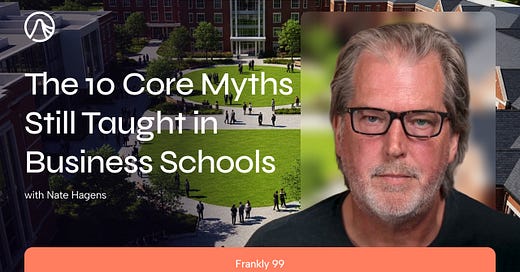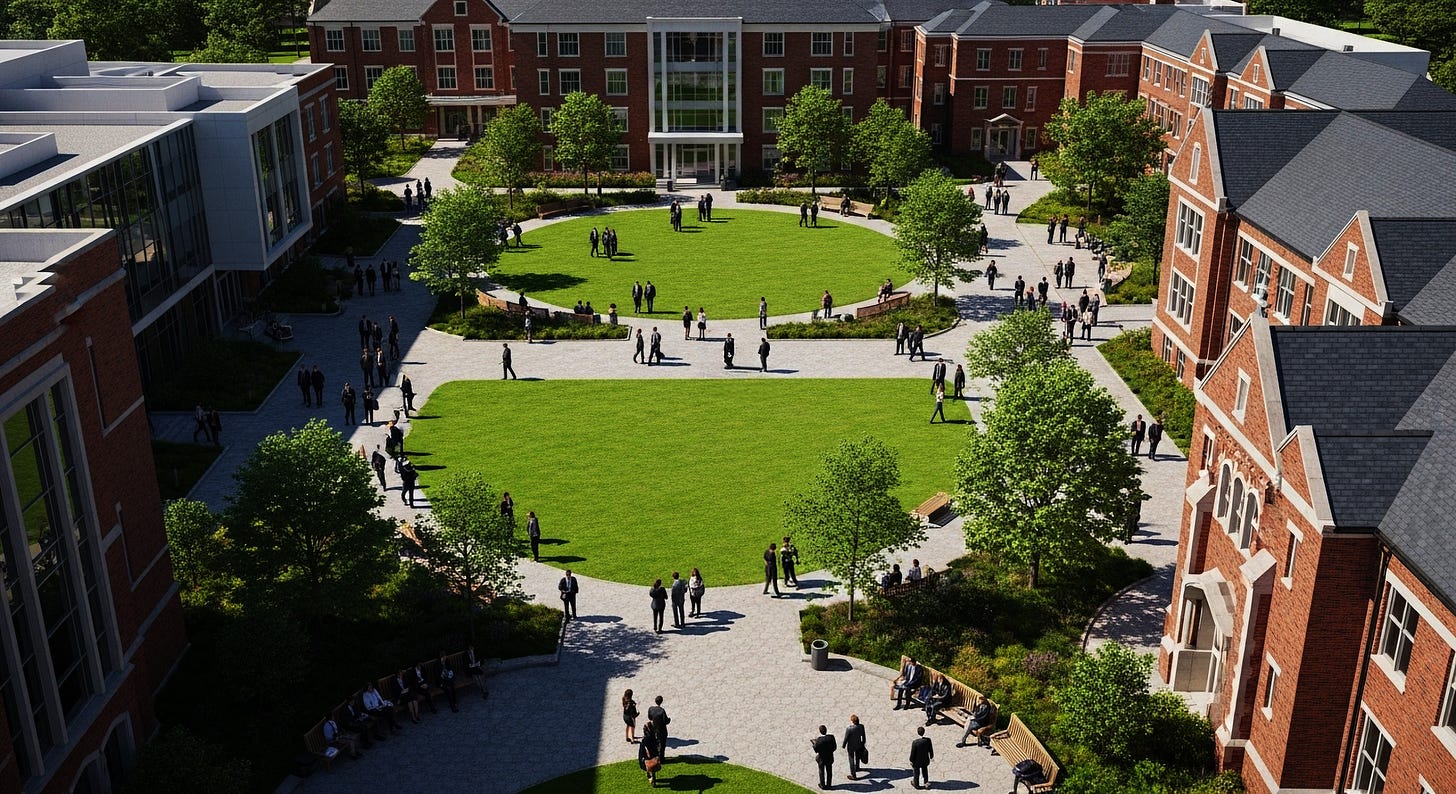Economics departments around the world teach a narrow boundary story of the way our world works. A narrative of infinite growth driven by consumption and money, which has dominated our culture and unknowingly shaped the way we live. But does this story really reflect our biophysical reality – or the full scope of humanity’s role within it?
In this week’s Frankly, I identify 10 myths being taught in business schools today, and the massive implications these misconceptions hold for society. From the way we define value and the boundaries of success to the idolization of self-interest and human ingenuity, these so-called laws of economics were developed in a different world than the one we inhabit now. By exposing the unquestioned myths that are perpetuated in MBA education, I aim to sow the seeds of an economic system rooted in the real world – which may one day become a reality.
What would it take for the long-held “immutable truths” of economic theory to be questioned, and eventually changed to better reflect our material limits? How do we redefine "success" in a way that does not posit GDP as the main indicator of human or economic well being? Most importantly, if we shed ourselves of these delusions, how might we reimagine an economic system that centers the well-being of citizens, the health of the planet, and all of the species we share it with?
In case you missed it…
Last week, I was joined by Rod Schoonover, an expert at the intersection of Earth systems stress and national security, where we discussed the need for the evolution of national defense to address the systemic (and diffuse) threats of the 21st century. Rod emphasized the need for a reformed security sector that addresses contemporary challenges, like global heating that leads to extreme climatic events, urging immediate action to mitigate risks and enhance stability. Importantly, we also delve into the need for political leadership to embrace complexity and local resilience when tackling these pressing issues.
If you appreciate The Great Simplification podcast…
Be sure to leave a review on your preferred podcast platform! Leaving reviews helps the podcast grow, which helps spread awareness of our systemic situation from experts in ecology, energy, policy, economics, technology, and community building so that we can better understand - and respond to - the challenges of the coming decade.
The Great Simplification podcast is produced by The Institute for the Study of Energy and Our Future (ISEOF), a 501(c)(3) organization. We want to keep all content completely free to view globally and without ads. If you’d like to support ISEOF and its content via donation, please use the link below.






Excellent analysis exposing the emperor as a nudist. Nate Hagens explains how the economic theory still being taught in universities and business schools has given rise to, and continues to exacerbate the multiple crises the world is facing in the twenty first century.
This is a wonderful essay approaching the economics of truth in the natural world. Good economics describes how value works in both egoic and non-egoic life. Some thoughts:
If sanity is objectively observing what is before us, then our scientific, economic, and spiritual education is driving us insane, causing us to confuse Egoic experience with objective or devotional observation.
You're suggesting people aren't rational because we are messy, emotional, deeply social, and care what other people think. Human behavior is rational when we understand 1) Most people do what ego tells them do, and 2) Feeling is an evaluative function as rational as thought. We feel and think what we do for reasons we evaluate against our perception of an unknowable truth. Not all thoughts or feelings are the same. An objective model for humanity considers how we think and feel without ego.
Saying we are "beautifully irrational" is not seeing the rationality behind non-egoic life. For example, a parent caring for a child is not "beautifully irrational," but following a logic ego doesn't understand.
We can discuss each of these economic myths from a non-egoic viewpoint, but we'll leave it here.
Humanity is like a spouse having to suffer an addict/alcoholic mate as they pull the family through hell on the way to the spouse hitting rock bottom and admitting they're powerless before their addiction and life is unmanageable.
Ego helps children grow into beautiful individuals, but adults mature by willfully setting ego aside. We are addicted to our egos and learning the value of setting it aside.
If you're interested in this type of discussion, I'm publishing three books this summer on the subject: noegoodyssey.com